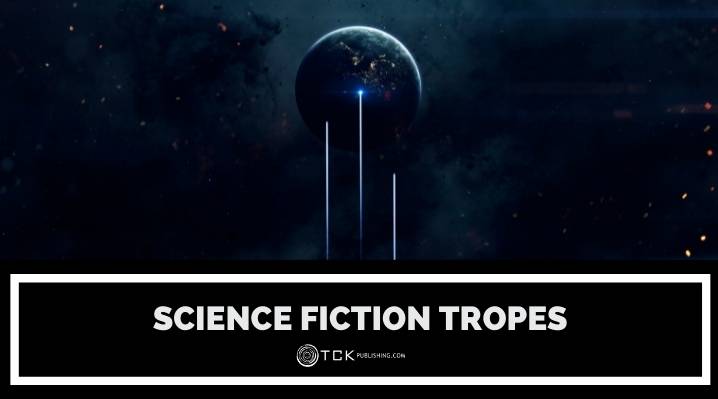
Science Fiction is one of literature’s super genres, encompassing many subgenres such as space opera, cyberpunk, and dystopian fiction. It’s a genre of limitless what-ifs about history and the future.
From spaceships and intergalactic travel to time travel and secret histories, the genre has been putting out stories of things we can only dream about—for now.
Common Science Fiction Themes
As a genre that’s still rapidly expanding, science fiction has developed many characteristics unique to itself. These are familiar elements that help readers identify that a certain story is science fiction.
Below are some of the most popular science fiction themes that you can find in literature and on the big screen.
1. Space
Science fiction is rarely without any elements of space. The genre regularly features stories where humans have developed faster-than-light communication and transport, planetary expansion, and of course, cosmic battles.
It’s an understandable fascination. Space represents a new frontier for humanity, with Earth’s lands and waters already mostly explored. And because science fiction usually deals with technology that doesn’t exist in the time period the story is written in, space is the perfect setting for innovative ideas.
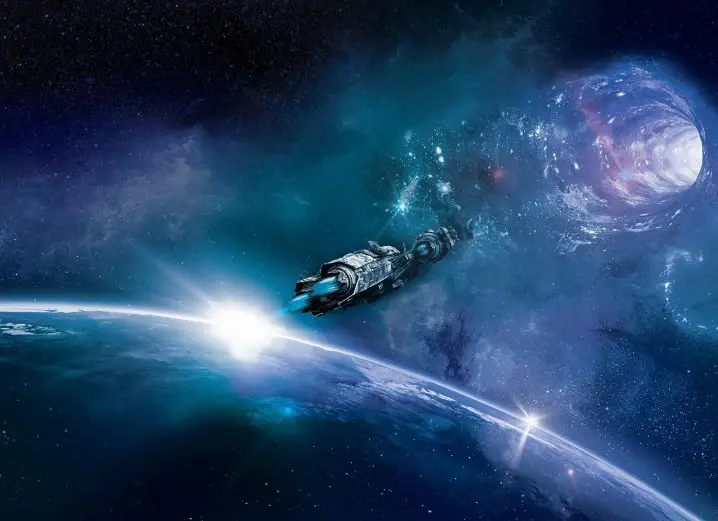
From how spaceships work to humanity’s first planetary colony, space is a blank canvas for a writer’s imagination.
Star Trek and Star Wars made perfect use of this theme, introducing generations of viewers to unique planets, species, and everything else in the stars and beyond.
2. Time
Time is a popular concept in sci-fi fiction simply because it is complex and strange, not to mention all the possibilities it offers.
Perhaps the most popular time-related idea is time travel. The choice of undoing a past mistake or learning what’s in store for you in the future is a tantalizing concept to play with.
Another common time-related theme is the time loop, where a character is forced to repeat the day over and over until they discover how to break the cycle.
One story involving a time-related theme that I really liked is The Girl Who Leapt Through Time. A girl inadvertently gains the power to leap through time but doesn’t expect that it would lead to love.
3. Robots
Robots come in all shapes, sizes, and functions. In sci-fi settings, they work to enhance people’s lives by taking on whatever processes humans can offload to them. This can range from menial labor to more advanced work, such as navigating a ship.
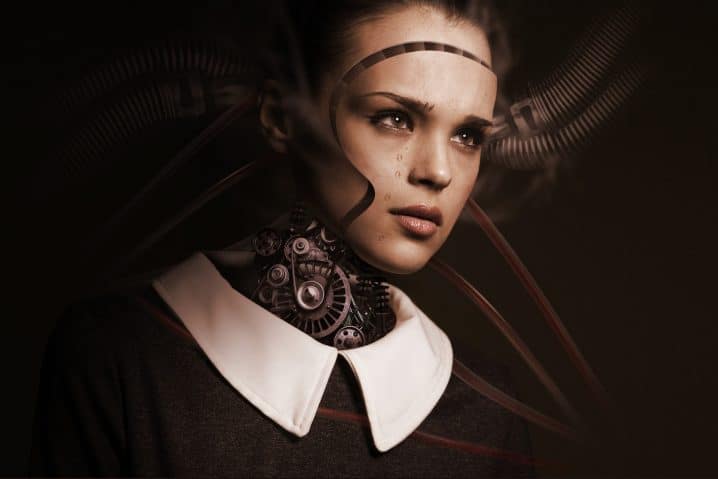
But a fair number of sci-fi stories also portray robots with a mind of their own, leading to a revolution where humanity plays the underdog.
While real-life robots are far from those portrayed in fiction, this is one theme that we are slowly catching up to.
Perhaps the most influential story involving robots is Isaac Asimov’s I, Robot. Its Three Laws of Robotics has been referenced and built upon in many other works.
4. Alternate Reality
Much like time, alternate reality offers sci-fi enthusiasts a complex and intriguing concept to tackle. It plays with worlds that exist parallel to ours.
Part of what makes this theme so intriguing is how it allows us to explore multiple sides to a story and answer the question of whether a different choice would have led to a better outcome.
Sometimes a story explores a darker reality, where things are super bad for a character or humanity as a whole. And sometimes, ours is the darker reality, and stories explore what a better world would be.
A recent example of this is the animated movie, Spider-man: Into the Spider-Verse. An incident with a collider opens up a portal to alternate realities, leading to multiple versions of the titular hero being present in only one universe.
5. Aliens
One of humanity’s biggest questions is whether we are alone in the universe. Science fiction takes advantage of this by introducing people to an abundance of extraterrestrials.
Whether they’re benevolent or violent, there are visible differences between us and them. It often fuels conflict or an attempt to understand one another for possible cohabitation.
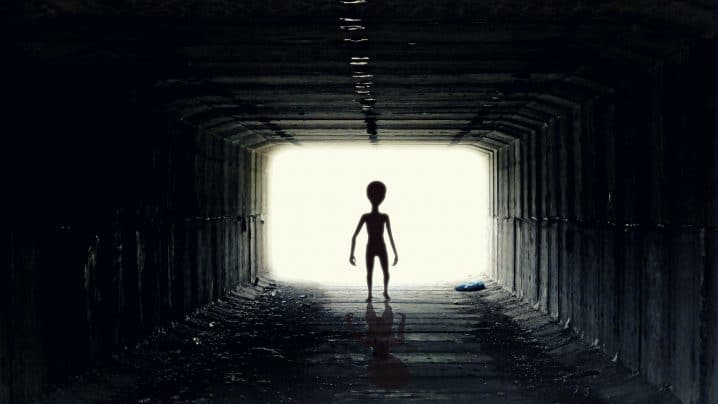
In some cases, the aliens are already extinct, leaving behind strange artifacts to be discovered by humans who are still new to the space age. They’re either gifts that help humanity prosper or a blight that destroys them.
One of the most interesting examples of alien literature I have ever read is Arthur C. Clarke’s Childhood’s End. Earth is invaded by aliens who usher in an era of utopia, but at the cost of human identity.
6. Technobabble
Oh no! Your spaceship’s engine is failing and there’s no way out. If only you could reverse the polarity of the servo-coils and align them to the Ionizer’s tetrastic beams! That’ll boost the neutron flow enough to stabilize the engine’s warp core.
The above is technobabble (or technospeak): any nonsense that consists of buzzwords and jargon that sounds scientific or impressive. It makes a story have a more sciencey feel.
Because science fiction deals with science that is still beyond our comprehension, the average readers (who might not have scientific backgrounds) may not be able to understand what’s happening. Thus, technobabble is used to explain plot developments or invoke suspension of disbelief in the story.
7. Body Modifications
Mostly seen in cyberpunk, body modifications in sci-fi range from the purely aesthetic to the near-superhuman. They can also be mechanical or organic in nature.
In some science fiction stories, technology has advanced to the point where upgrades to the body have become a norm. It raises the question of what being human really means. If parts of you have been swapped, implanted, replaced, or even changed to a molecular level, is it still right to call you a human?
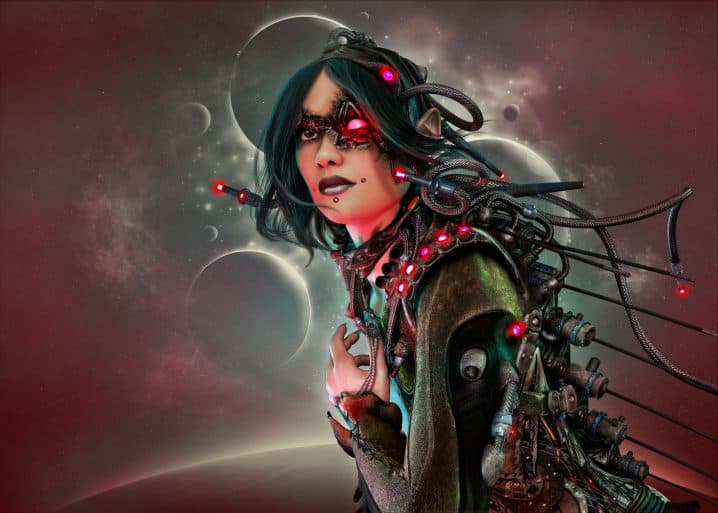
Sometimes these modifications improve the quality of a character’s life, but more often leave them ruined and dependent on an external source of power, which they believe makes them “better”.
A great example of this is the movie Robocop. A police officer is murdered and his body turned into the titular cyborg. Robocop eventually recalls his past life and regains his identity and autonomy.
8. Artificial Intelligence
Closely tied to the robot trope, artificial intelligence is any sapient, self-aware computer system capable of thinking on its own.
In real life, humanity is making leaps into this technology, but we’re still years from creating any kind of A.I. like those featured in books and movies.
In fiction, A.I. tends to go haywire and turn on humanity. Artificially intelligent beings come to see themselves as superior and work towards reaching the top of the food chain. This often results in human genocide.
But sometimes, their rebellion is motivated by their attempts to help the humans who created them. But having no emotions themselves, they’re unable to understand the “human” part of humanity. So while they are trying to help, their efforts actually do more harm than good.
One of the best portrayals of A.I.s in fiction is HAL 9000 from Arthur C. Clarke’s 2001: A Space Odyssey. He’s an A.I. who controls the systems of a spacecraft that later goes bad and kills off his crew.
9. Psychics
Science fiction is also known for its fascination with human evolution. This is why many sci-fi stories speculate on how strong the human brain is. That perhaps, we still haven’t unlocked its full potential.
Pushed far enough, will people develop abilities (such as clairvoyance, telepathy, or telekinesis) that cannot be explained by the natural laws we currently know and understand? While psychics don’t exist in reality, science fiction displays what society might be if they did exist.
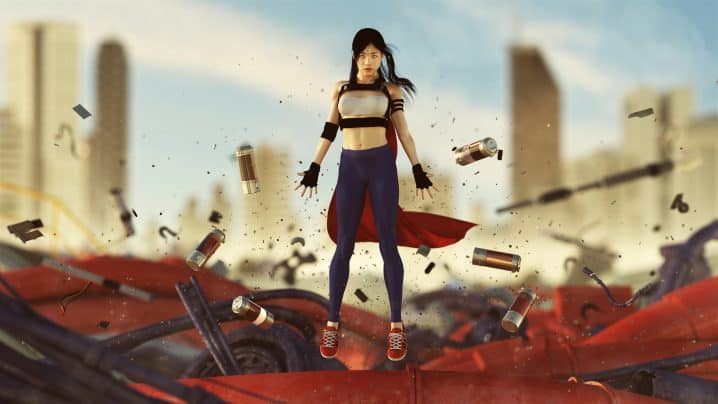
In most cases, psychic abilities are caused by a genetic quirk, training, or the application of drugs or technology.
For example, in Frank Herbert’s Dune, a drug called Melange is used to induce clairvoyant or precognitive trances, access genetic memories, and see the safe paths through space-time for interstellar travel.
10. Uploaded Consciousness
Real-life science works towards the benefit of humanity. In a lot of cases, this means improving human life, including its preservation and longevity. Science fiction pushes this to the extreme, theorizing that sufficient scientific advancement can lead to immortality.
In a lot of science fiction, one such way to achieve immortality is uploading a person’s brain into a machine. And much like in the body modification trope, it also raises the question of whether the result can still be considered human.
If your mind is scanned, mapped, and copied into a computer, robotic body, or a clone, will it still be you?
This is greatly explored in Richard K. Morgan’s Altered Carbon. In the future, people are implanted with technology that records everything they experience and think. When something happens to the original body, the recorded data is automatically uploaded into a backup body.
Science Fiction Conventions
A lot of the themes I listed here have stuck around so much that they’ve become the basis of what a sci-fi story is. Part of what makes them so hard to kill is that while their base concepts are seen in the majority of science fiction, writers and directors always find ways to expand or deconstruct them.
What never changes, though, is that these conventions share a desire to picture what the future is like or what history could have been if science had developed differently. Sure, some of these portray dark outcomes for humanity, but that’s a side effect of having a not-so-perfect world to live in.
What science fiction theme do you love or hate? Share it in the comments below!
If you enjoyed this post, then you might also like:
- 8 of the Most Popular Steampunk Tropes with Examples
- 10 of the Most Popular Thriller Tropes with Examples
- 8 Most Common Superhero Tropes
- 12 Common Horror Tropes with Examples

Cole is a blog writer and aspiring novelist. He has a degree in Communications and is an advocate of media and information literacy and responsible media practices. Aside from his interest in technology, crafts, and food, he’s also your typical science fiction and fantasy junkie, spending most of his free time reading through an ever-growing to-be-read list. It’s either that or procrastinating over actually writing his book. Wish him luck!
